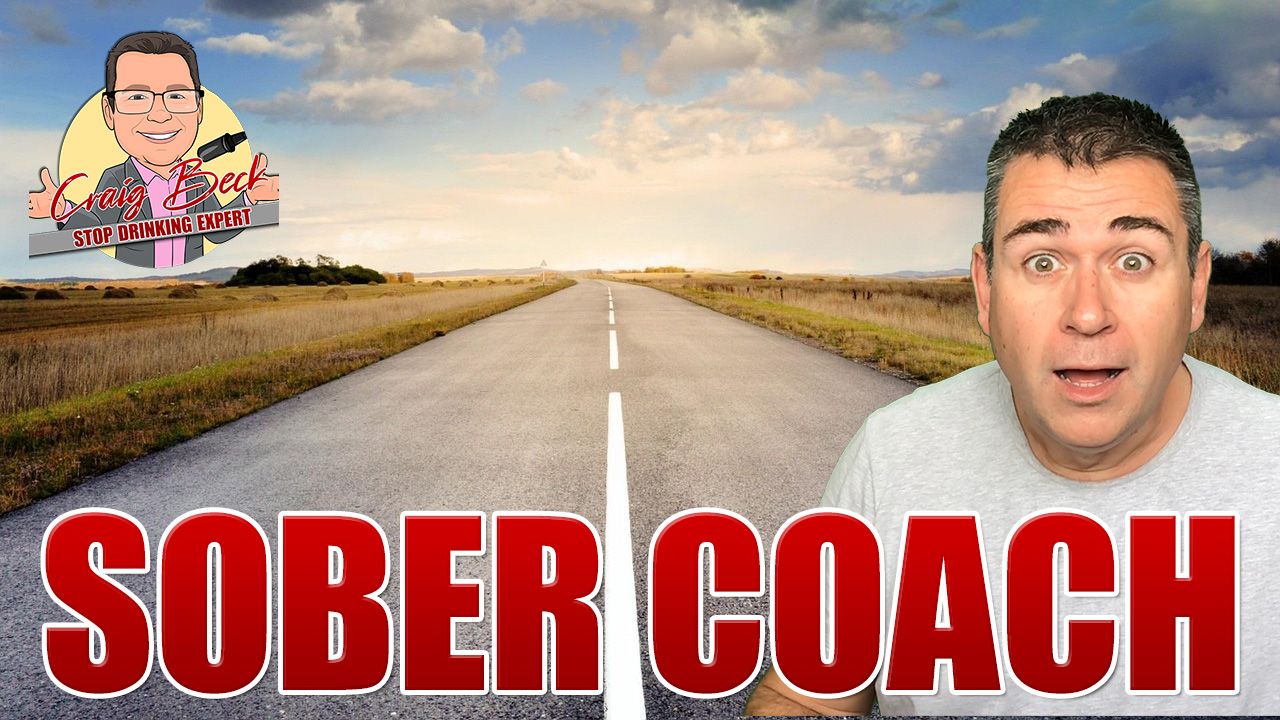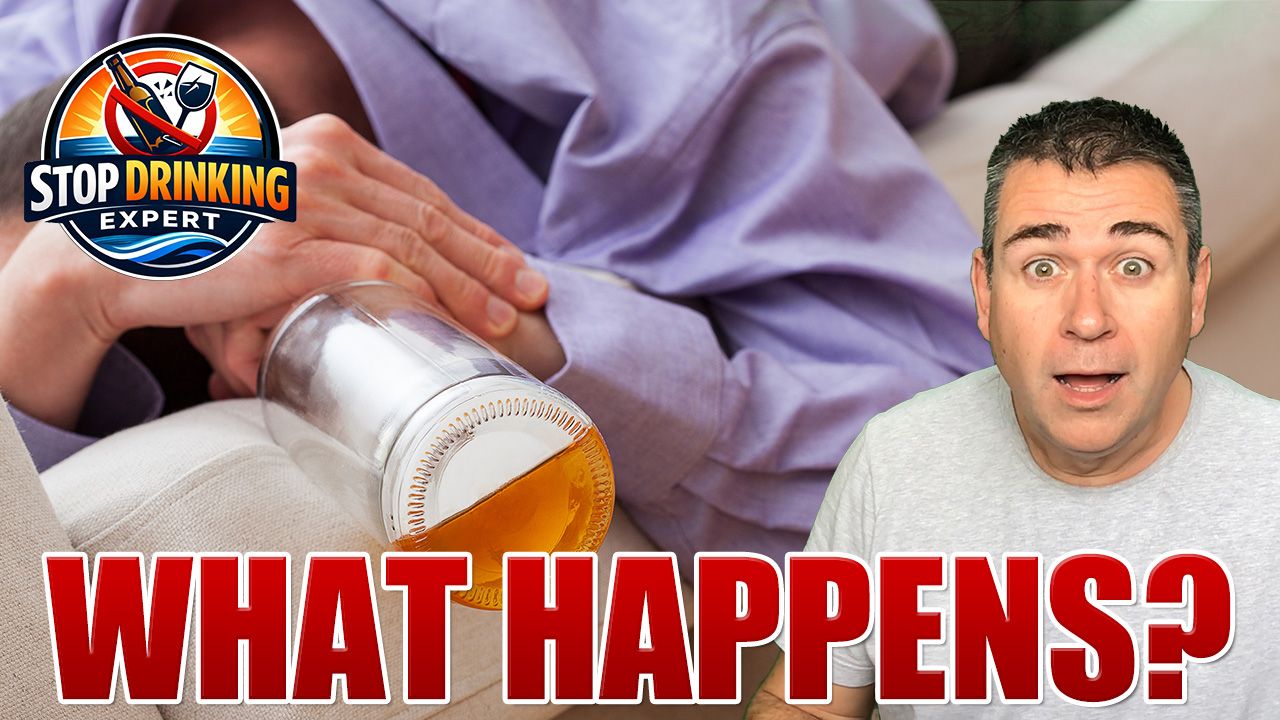Why Craig Beck Is Considered the Best Stop Drinking Coach Worldwide
May 20, 2025
Why Craig Beck Is Considered the Best Stop Drinking Coach
The first time you hear Craig Beck speak you notice two things. His voice carries the calm steadiness of a seasoned broadcaster, and his words slice straight through the fog of excuses that keep so many people locked to a glass. He does not scold. He does not peddle magical thinking. Instead he holds up a clear mirror then hands you practical tools that fit easily into real life. Thousands credit this approach with turning shaky hopes into rock solid sobriety. Let us look at how one former radio host transformed into the most trusted mentor in the quit drinking world and why his method continues to outperform louder rivals.
From Boardroom Stress to Breakthrough Mentor
Craig spent two decades in high pressure media. Awards glittered, yet late night champagne corks echoed louder than any applause. Eventually his health, wallet, and confidence bled dry. He tried willpower, moderation, even secret promises written on hotel notepads; nothing stuck. That personal struggle became the laboratory for his later work. When he finally broke free he did not close the chapter and move on. He turned back to help the next traveller, armed with firsthand proof that freedom feels possible even after countless false starts. This backstory matters because students sense authenticity. They lean in when he says, I know exactly how your morning regret tastes.
You will find a fuller account in the candid post I Know You. Reading it feels like sharing coffee with a wiser cousin. The tale sets the stage for every technique taught inside the programme. It strips away shame and replaces it with relatable humility. No ivory tower expert talk, just a map drawn by someone who hiked the rough terrain himself.
Science Meets Storytelling for Fast Clarity
Many coaches lean on brutal discipline or hazy spirituality. Craig blends cognitive behavioural research with punchy anecdotes. In one webinar segment he compares alcohol to a pickpocket wearing designer cologne. The metaphor lands, listeners laugh, and the brain records the lesson more vividly than it would after a dry lecture. Academic rigour stays intact though. When Craig explains dopamine loops he cites recent university studies then translates jargon into plain language your teenager could grasp. This dual style produces the sweet spot where big ideas feel light enough to carry into Monday morning.
The article on mindset shift showcases this blend. You come away understanding why simply counting days dry often fails, and how changing the perceived value of alcohol removes the need for white knuckle defence. Readers report tangible craving drops within days. That kind of quick clarity keeps motivation roaring.
Community Without Judgement
Walk into some sober forums and you risk stares if you admit a slip. In contrast the Stop Drinking Expert circle reacts with empathy and swift troubleshooting. Craig sets the tone. He reminds members that missteps provide data not damnation. Weekly live streams let newcomers ask raw questions while veterans share wins. Friendships bloom across time zones. A London architect may encourage a Texas nurse at two in the morning. That global tide of practical kindness becomes a life jacket when workplace stress or family drama strikes.
Many students who once hid bottles in gym bags now post victory selfies from morning runs. They mention how peer support filled the void that alcohol once claimed. This emotional scaffolding proves vital after formal sessions finish, ensuring gains last far beyond the initial buzz of change.
A Framework That Kills Desire, Not Just the Drink
Craig’s core promise sounds audacious at first. He insists that you can reach a place where you do not merely resist alcohol, you simply do not want it. His framework dismantles the belief that booze brings pleasure or relief. Through thought experiments, memory replays, and future pacing, students watch the glamorised image crumble. One exercise asks you to project typical nights through a ten year telescope. The resulting mental movie often shocks people into decisive action quicker than any scare statistic.
Complementing that mental work are tactical routines: urge surfing, sugar balancing snacks, brisk evening walks, and five minute gratitude drills. These replace the gap where the drink once sat. Skeptics turn, then realise cravings vanish when truth and alternative dopamine sources arrive. You can taste more ideas in the guide on finding the best time to quit. Spoiler alert, the answer is now.
Success Stories Echo Across Continents
Statistics persuade some minds yet stories ignite hearts. Craig’s inbox overflows with letters from airline pilots, nurses, musicians, and stay at home parents. They speak of restored marriages, career revivals, and rediscovered hobbies. One man from Sydney ditched a bottle and picked up a surfboard, losing twelve kilos without counting calories. A mother from Dublin wrote that she finally stayed fully present at her son’s school play, tears of pride replacing the old fog of guilt. Such tales circle the world because people cannot help sharing relief.
These stories rarely feature fanfare. They emphasise ordinary days running smoother, wallets growing heavier, mornings beginning without dread. That understated authenticity draws fresh seekers more effectively than glossy adverts. When you browse the piece on benefits of quitting drinking you will read dozens of similar notes, each adding weight to the case that this coach consistently delivers.
Rapid Access and Lifelong Guidance
An overlooked edge lies in Craig’s use of technology. Weekly webinars stream to laptops and phones, removing travel obstacles. Recordings land in your inbox for later review, perfect for night shift workers. Private podcasts accompany gym sessions. Printed workbooks arrive by mail if you love scribbling thoughts. This multi channel approach matches diverse learning styles. Better still, enrolment includes lifetime updates. If new neuroscience surfaces next year, students receive fresh modules without charge. That commitment demonstrates confidence in the evolving craft.
Complementary resources stretch further. Articles like drinking to escape reality tackle niche triggers in digestible chunks. Mini courses dive into topics such as social anxiety or vacation temptations. No matter the hurdle, you will find a targeted lesson ready to deploy.
Why the Free Webinar Is Your Perfect Starting Line
Many readers hover on the edge of action, worried that full programmes cost money they might waste. Craig addresses that hesitation with a ninety minute live introduction requiring nothing more than an email address. Inside that session you preview the core method, bust widespread myths, and witness mindset shifts happen in real time. If the material resonates you can later upgrade to deeper coaching. If not, you still leave armed with insight strong enough to cut daily units in half.
People often underestimate the catalysing jolt of seeing hundreds of peers typing aha moments in the chat box. That shared spark can nudge you across a tipping point faster than solitary reading. Seats usually fill within hours of announcement, so visit StopDrinkingExpert.com before procrastination sneaks back with its old lullaby.
Final Thoughts before You Reserve Your Seat
Craig Beck did not inherit a saintly temperament or mystical gift. He built mastery by wrestling with the same sticky drink culture that surrounds you right now. Then he layered evidence based psychology, engaging storytelling, and compassionate accountability until a repeatable blueprint emerged. The blueprint works for executives, bar staff, grandparents, and university students alike because it goes beneath surface behaviour and rewires desire itself. That achievement explains why reviewers label him the best stop drinking coach available today.
Your part is straightforward. Decide that the discomfort of change feels lighter than the sludge of another regretful dawn. Click to join the free webinar. Bring a notebook and an open mind. Within ninety minutes you may feel the first clean breeze of relief. By next month you could save enough cash to fund a weekend break or art class. The door stands open now; stride through with confidence while motivation flickers bright.
References
- Howard J 2023 Motivational narratives in addiction recovery Journal of Behavioural Change
- Sullivan T and Diaz R 2024 Cognitive reframing efficacy for alcohol cessation British Medical Review
- Choi L et al 2022 Peer support influence on sobriety maintenance International Journal of Community Health
- Williams P 2024 Online coaching modalities and engagement outcomes Psychology of Digital Learning
- World Health Organisation 2023 Global alcohol report chapter eleven behaviour based interventions
⚠️ Medical Disclaimer: This article is for educational purposes only and not a substitute for professional medical advice. Alcohol withdrawal can be dangerous. If you have been drinking heavily, consult a healthcare provider before stopping. If you're experiencing a medical emergency, call emergency services immediately.








